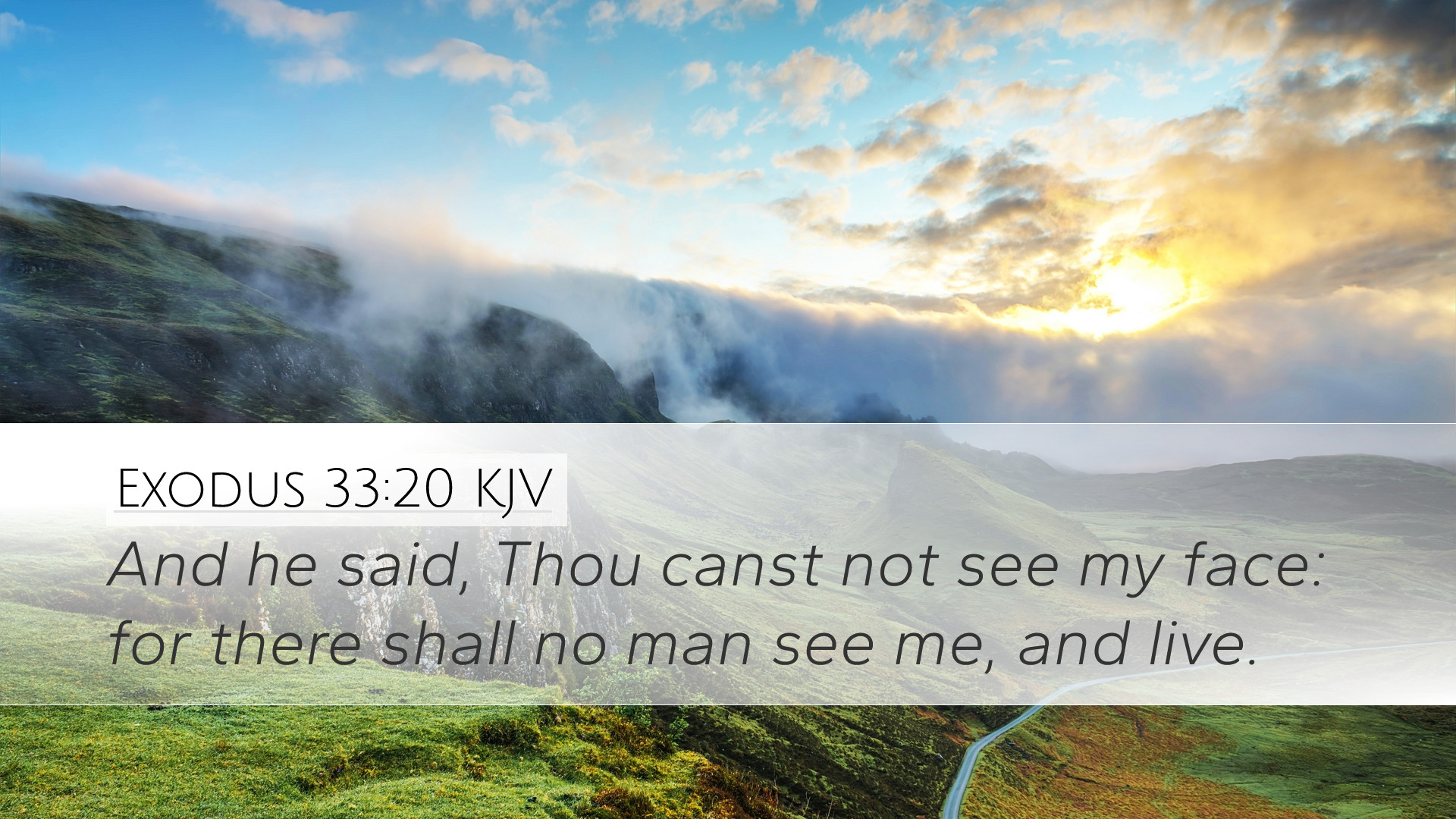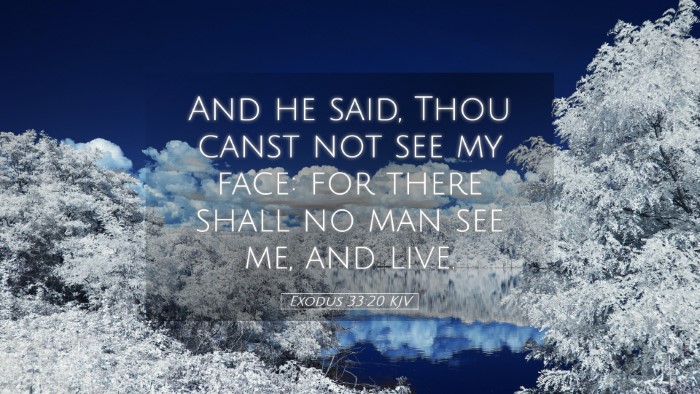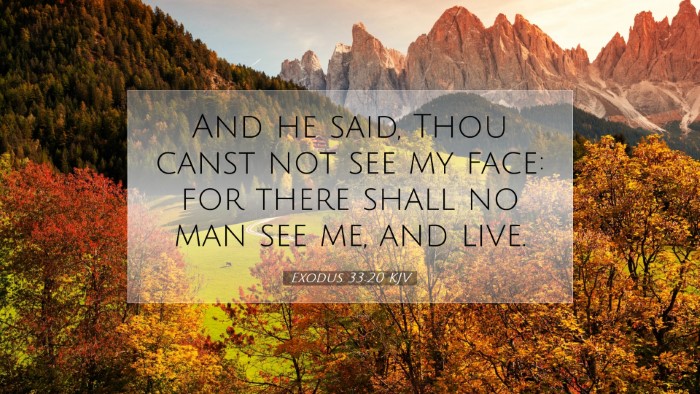Commentary on Exodus 33:20
Verse Analysis: Exodus 33:20 states, "But he said, Thou canst not see my face: for there shall no man see me, and live." This profound verse delves into the nature of God's holiness and the limitations of human beings in their relationship with the divine.
The Holiness of God
Throughout Scripture, the holiness of God is a central theme. As Matthew Henry points out, God's holiness is not merely an attribute; it is His nature. His essence is so pure and divine that to behold Him in His fullness would be fatal to sinful humanity. This sentiment is echoed in numerous biblical passages, affirming that no blemished being can stand before the perfect purity of God.
Human Limitations
Albert Barnes emphasizes that the statement "for there shall no man see me, and live" signifies the inability of a sinful humanity to approach God without being consumed by His glory. He argues that this presents a clear boundary established by the holiness of God, which is vital for understanding the relationship between God and humanity. This boundary is not arbitrary but serves to protect humanity from the overwhelming holiness of God. The human condition is such that unrefined exposure to divine glory would lead to destruction.
The Nature of Divine Revelation
Adam Clarke provides a valuable perspective on divine revelation, stating that while direct sight of God's face is impossible, God makes Himself known through various means. Clarke highlights the significance of theophanies (manifestations of God in physical form) and other forms of divine communication. In this light, believers can experience God's presence tangibly while still respecting the divine boundary that shields humanity from direct exposure to God's holiness.
The Concept of 'Seeing God's Face'
Contextually, seeing God's face represents experiencing a close and intimate relationship with Him. Matthew Henry illustrates this point, noting that while individuals cannot look upon God's essence, they can still enjoy fellowship with God through prayer, worship, and obedience. The covenantal relationship established in Exodus allows for interaction with God that does not compromise His holiness.
Theological Implications
This verse raises important theological concepts relevant today. First, it reaffirms the necessity of atonement for sinfulness to bridge the gap between a holy God and humanity. This foreshadows the work of Christ, who, through His sacrificial death, provides believers access to God. Albert Barnes comments that through Christ, the way is opened for humans to approach God confidently.
Encouragement for Believers
While Exodus 33:20 conveys a serious warning about God's holiness, it simultaneously offers encouragement. Believers are assured that although they cannot see God face to face, they are invited into a relationship characterized by grace and mercy. Adam Clarke concludes that the believer's longing to see God will be fully satisfied in eternity when believers will behold Him in His glory, free from the constraints of sin.
Practical Applications
- Understanding Divine Holiness: Believers are called to approach God with reverence and humility, recognizing His otherness and purity.
- Developing a Relationship with God: Engage in practices that foster a closer relationship with God, such as prayer, worship, and studying His Word.
- Emphasizing Christ's Role: Recognize and celebrate the redemptive work of Jesus Christ as the means through which humanity can draw near to God.
- Aspiration for the Believer: Maintain a hope for the future, anticipating the day when believers will fully experience God's presence without fear or limitation.
Conclusion
Exodus 33:20 serves as both a profound caution and a compelling invitation. The verse encapsulates the tension between God's holiness and human frailty while paving the way for a deeper understanding of God's loving provision through Christ. Believers are reminded that although they cannot see God in His fullness now, they are called to pursue holiness and relationship in anticipation of the ultimate communion to come.


